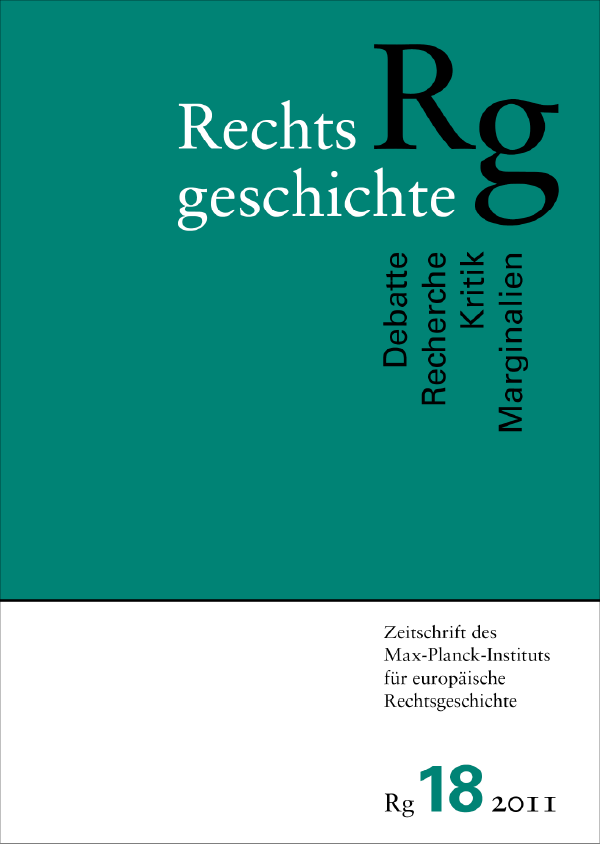Durch Zwang zur Freiheit?
Wirtschaliche Selbstverwaltung im deutschen Kaiserreich zwischen Regulierung und Selbstregulierung
DOI:
https://doi.org/10.12946/rg18/096-118Abstract
Economic self-government occurs when organized economic actors fulfill public duties, participate in providing law and law enforcement, and are given scope for the exercise of their interests. It takes place in advisory boards, chambers and cooperatives regulated by public law. Economic selfgovernment emerged in the 19th century. Its importance increased primarily from the end of the 19th century, the time of the emergence of the interventionist state. This development seemed to be accompanied by a loss of freedom because selfgovernment was legally constructed as a state-dependent form of organization. Above all, it was subject to state supervision. However, this review would be one-sided. The establishment of selfgovernment, simultaneously, created the possibility of increased influence on public affairs. The semi-official character of self-government institutions strengthened the legitimacy of the economic representation of interests and the power of enforcement in relation to government authorities and other organized societal actors. Economic selfgovernment was a way of coordinating divergent interests more effectively in a highly differentiated society and enlarging the space for the collective exercise of freedom. The resulting increased dependence on the state was a price which large parts of society were willing to pay.
Downloads
Veröffentlicht
Zitationsvorschlag
Ausgabe
Rubrik
Lizenz
Copyright (c) 2011 Autor/in

Dieses Werk steht unter einer Creative Commons Namensnennung - Nicht-kommerziell - Keine Bearbeitung 3.0 International -Lizenz.





